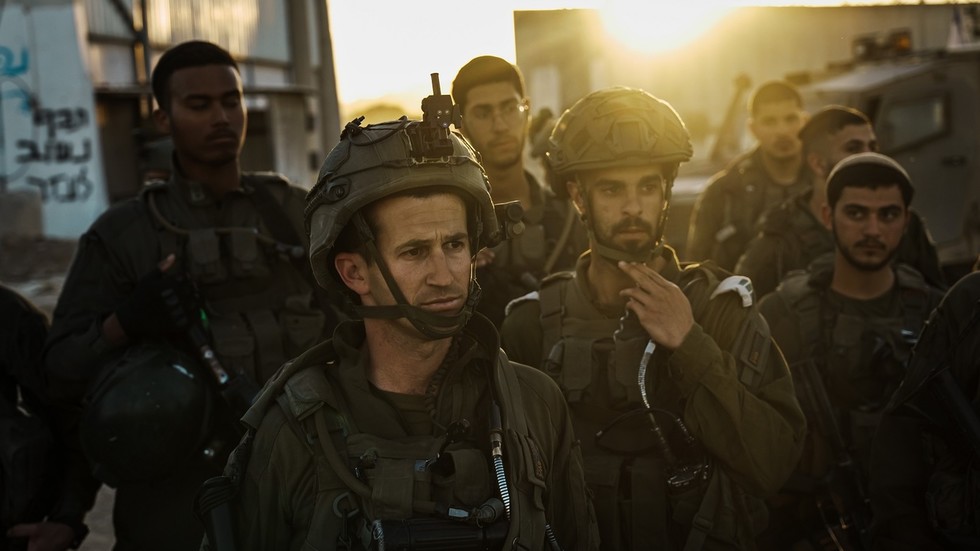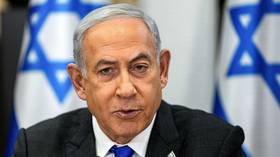
Two additional brigades are being called up to fight in Gaza, the military has said

FILE PHOTO: Israeli troops at the Gaza border. © Marcus Yam / Los Angeles Times via Getty Images
Israel will mobilize two additional brigades for operations in Gaza, the military announced on Sunday.
More reservists are needed on the front line “to defend the State of Israel and ensure the security of its citizens,” the Israel Defense Forces (IDF) said in a statement.
The announcement came a week after Israel pulled most of its ground forces out of the Palestinian enclave, in what the military leadership described as preparation for a mission in the city of Rafah.
Israeli Prime Minister Benjamin Netanyahu is under pressure from his coalition partners to send ground troops into the city on the Egyptian border, where some 1.3 million Palestinians are estimated to be crammed. The US, a key supplier of military aid to Israel, has expressed concerns that an operation in Rafah would cause significant civilian casualties.

Read more
Members of the Israeli government, including Netanyahu, have maintained the Jewish state cannot achieve its primary stated goal of defeating the Palestinian militant group Hamas without entering Rafah.
The announcement on Sunday came after Western assistance helped Israeli forces repel a barrage of Iranian drones and missiles. Tehran launched the attack in retaliation for an airstrike on its consulate in Damascus on April 1, which it blamed on Israel. The IDF claimed that together with its partners, it had had stopped some 99% of Iranian projectiles.
Commenting on the Iranian attack, IDF Spokesperson Daniel Hagari stressed that the Israeli military “has not lost sight” of its goals in Gaza. “Hamas and Iran want to ignite the Middle East and escalate the region,” he claimed.
The ongoing hostilities in Gaza were triggered by a Hamas incursion into southern Israel in October, in which some 1,200 people were killed and dozens taken hostage. More than 33,000 Palestinians have been killed amid the Israeli retaliation, most of them women and children, according to local health authorities.




